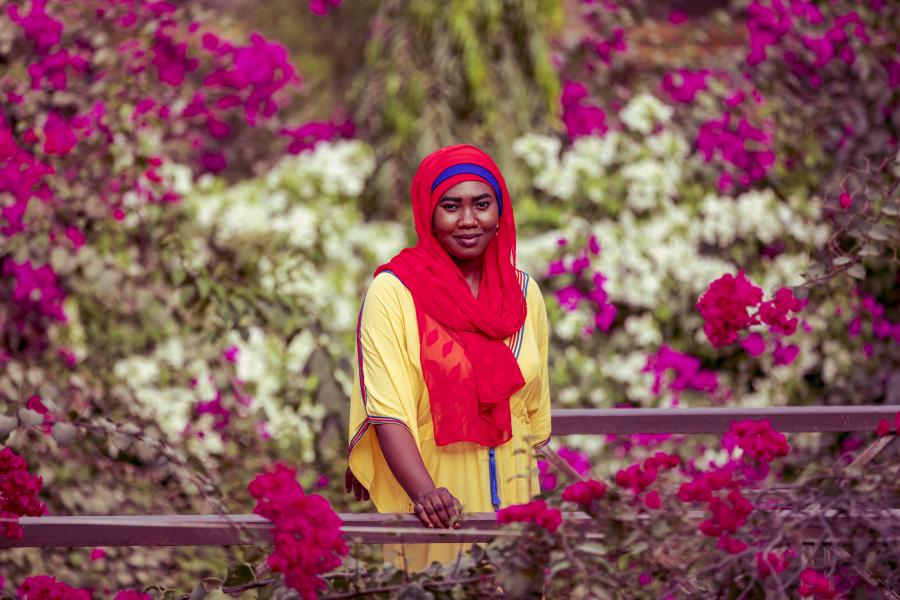Executive summary
In 2022, West and Central Africa hosted 11.2 million forcibly displaced and stateless people, including 7.8 million internally displaced people (IDPs), 1.6 million refugees and asylum-seekers, and 931,200 stateless persons. 1.1 million people were newly displaced due to armed conflicts, insecurity and human rights violations, including 800,000 IDPs in Burkina Faso, Cameroon, the Central African Republic (CAR) and Mali, and 138,000 refugees from Burkina Faso, Cameroon, Mali, Nigeria and Sudan. Heavy rains and floods displaced people in Chad, Cameroon, Niger and Nigeria. Insecurity hampered humanitarian access and inflation raised operating costs, while the funding fell short of the needs.
Amid the complex political and operational environment, UNHCR responded to several new emergencies: in the Far North region of Cameroon, which led thousands to flee to Chad; in eastern Chad following an influx of Sudanese refugees; and in the Gulf of Guinea, as refugees fled Burkina Faso for Benin, Côte d’Ivoire, Ghana and Togo. UNHCR supported Governments to meet the needs of new refugees and IDPs, with an emphasis on protection, shelter and core relief items.
Protection was at the heart of UNHCR’s work in the Central Sahel, Lake Chad Basin and CAR situations. The inter-agency protection monitoring system Project 21 covering Burkina Faso, Chad, Mali and Niger was strengthened and expanded, with 15,000 interviews in 2,400 localities generating information and analysis that informed humanitarian advocacy, planning and response.
Over 6.7 million women and girls were forcibly displaced or stateless. They were at heightened risk of gender-based violence due to conflicts, food insecurity, gender inequality and harmful traditional practices. UNHCR made significant efforts to help mitigate the risks and respond to incidents. In the CAR, approximately 4,000 gender-based violence incidents were reported and responded to, with assistance in person and via a toll-free phone line. In Burkina Faso, Mali and Niger, new mobile teams improved the gender-based violence response and access to services in remote areas.
The targeting of schools by armed groups in the Sahel meant that almost 8,900 schools were closed across Burkina Faso, Mali and Niger, affecting almost 1.7 million children. UNHCR responded by supporting Governments to enhance access to safe and quality education for forcibly displaced children and youth, rebuilding or rehabilitating 236 classrooms in Burkina Faso, Chad, Mali and Niger, and training 2,634 teachers to support the integration of refugee children into national education systems. 630 refugee students were supported with university scholarships. UNHCR undertook climate action, recuperating degraded soil, creating firebreaks in vegetated areas, promoting solar energy for water pumping, and substituting liquefied petroleum gas or eco-friendly briquettes for cooking and firewood. Around 150,000 tree seedlings were planted in Niger, while in Cameroon’s semi-arid Far North, use of the cocoon technique enabled trees to grow without irrigation.
Significant achievements were made in solutions. Under the Comprehensive Solutions Strategy for refugees from Côte d’Ivoire, UNHCR facilitated the voluntary repatriation of more than 21,300 Ivorians – bringing the total number who have returned to 316,000, while former refugees deciding to stay in their country of residence were supported to obtain Ivorian passports and residency. The entry into force of the cessation clause of refugee status on 30 June 2022 ended a protracted refugee situation.
Moreover, as the security situation improved in certain major cities in the CAR, over 5,600 refugees returned with the support of UNHCR, mainly from Cameroon and the Democratic Republic of the Congo. UNHCR and the Government of Cameroon co-hosted a regional ministerial conference to adopt the Yaoundé Declaration, paving the way for a harmonized regional framework for solutions for Central Africans.
3,901 individuals were submitted for resettlement and 2,059 refugees departed to Canada, France, the United States of America, Sweden, Finland and elsewhere. UNHCR’s efforts to develop complementary pathways resulted in 42 individuals acquiring scholarships for university studies in Italy and France, and the launch of a three-year labour mobility programme with Ghana and Canada.
